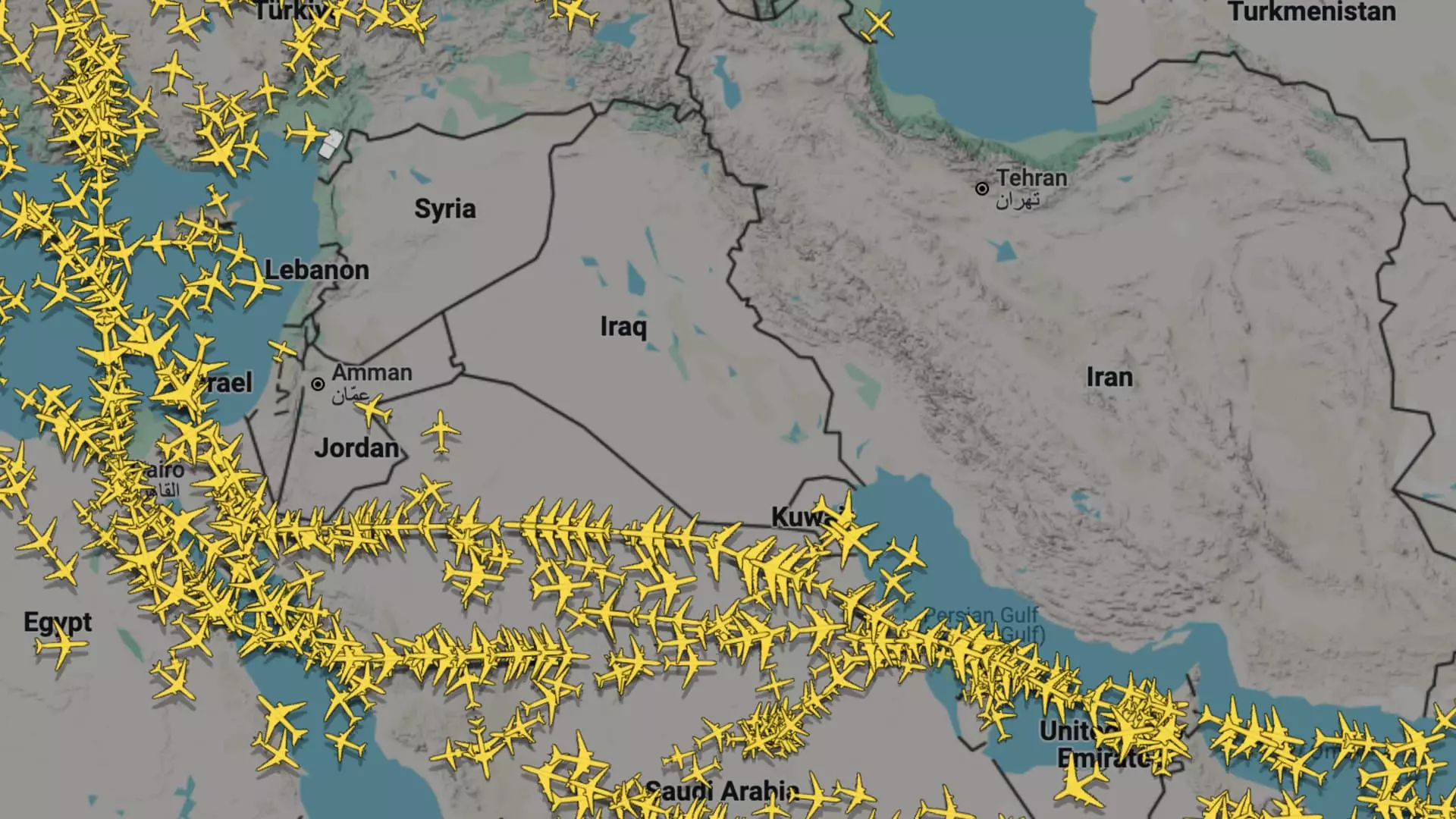In recent weeks, the volatile dynamics of international relations have once again reared their ugly head, leading to the cancelation of numerous flights to Israel by airlines across the globe. The triggering event was Israel’s missile strikes on Iranian territory, which prompted Iran to retaliate with drone threats. This conflict not only disrupts the fragile peace in the Middle East but also has extensive ramifications for commercial air travel. The decision by major airlines, like Delta and United, to halt services to Tel Aviv starkly illustrates the chilling effect of geopolitical tensions on economic activities.
Cost of Aversion: An Economic Dilemma
The cancellations are more than just a mere inconvenience; they highlight a catastrophic shift in the travel landscape. Airlines have long been considered a barometer for economic sentiment, and when industry giants like Delta seek to suspend operations indefinitely, the signal is clear: the cost of aversion is becoming too high. This repeated escalation in conflict forces airlines to divert from traditional routes, incurring higher operational costs while spiraling into financial instability. Business and leisure travelers alike must now factor uncertainty and inflated travel expenses into their plans.
Passenger Safety vs. Economic Gain
For airlines operating in or near contentious regions, there’s a significant balancing act between ensuring passenger safety and maintaining profitable operations. Recent developments in the Middle East emphasize this stark reality; with airlines like El Al suspending flights after security advisories, the public’s confidence can swiftly erode. Once a desired travel destination, Israel is becoming synonymous with caution and concern, turning travelers away and threatening the tourism industry.
Mandatory Reassessment of Airspace Utilization
The ongoing disruptions call for a thorough re-evaluation of airspace management in regions plagued by conflict. Currently, airlines are incurring sky-high costs by opting for longer routes that skirt around hazardous areas. This not only increases the journey time for passengers but also leads to a logistical nightmare for airlines trying to maintain schedules. Instead of focusing on profitability, airlines are seemingly forced to place their resources on risk management systems, further straining their operational capabilities.
The Broader Implications for International Relations
The ramifications extend well beyond the aviation industry. As conflicting parties vie for dominance, bilateral relationships fray, causing interdependencies that underpin international commerce to falter. Travel advisories and flight cancellations carry the weight of political implications, signaling a broader estrangement among nations. Assurances of safety become premium commodities, often traded off at the altar of political interests, with airlines caught in the crossfire.
It’s imperative for global leaders to take accountability for stabilizing the regions that become flashpoints for unrest. When travel restrictions ripple through the economy, it’s not merely a loss for the airlines—it’s a loss for entire industries dependent on connectivity and commerce. The ongoing volatility in the Middle East is a clarion call for a renewed commitment to diplomatic efforts that can restore security and peace, ensuring that nations can foster mutual cooperation rather than residing in a constant cycle of fear and disruption.

